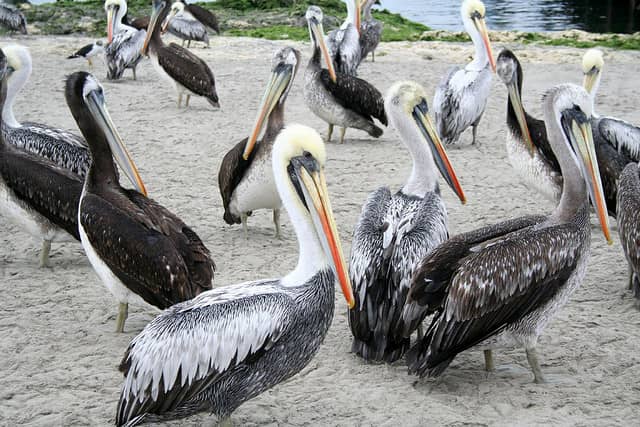Mysterious Marine and Coastal Bird Deaths in Peru Stump Scientists
OutdoorHub Reporters 04.30.12

Hundreds – possibly thousands – of pelicans, dolphins, sea lions and other marine animals and coastal birds have been found dead along a 40-mile stretch of Peru’s northern coast.
Since January, an estimated 900 dead dolphins have washed up onshore. Scientists have also located the carcasses of 54 boobies (a seabird), several sea lions and a turtle as well. The latest find has been that of 538 dead pelicans, along with other birds, according to the Peruvian Ministry of Production. Every age group and gender was represented in the grisly findings, and each species has been found in various stages of decomposition.
“When you have something this large, my gut would tell me that there’s something traumatic that happened,” said Sue Rocca, a marine biologist with the Whale and Dolphin Conservation Society, in an interview with CNN.
The birds appear to have died on the beach, but more tests are needed to determine the cause of death, according to the ministry.
A survey of about 43 miles (70 km) of beach coastline on Sunday revealed an estimated 592 dead birds, including pelicans and others. State-run TV Peru estimated that there were even more birds than that (~1,200) died when a larger range of coastline was surveyed – up to 100 miles (160 km) extending from Punta Negra in Piura to San José in the state of Lambayeque.
Multiple leads are being followed in an attempt to determine the cause of these die-offs. Peruvian Deputy Environment Minister Gabriel Quijandria told CNN the dolphins may have died from an outbreak of Brucella bacteria or Morbillivirus, which belongs to the same group as the measles virus in humans.
At this time, scientists have ruled out the following causes of death: lack of food, interaction with fisheries, poisoning with pesticides, biotoxin poisoning or contamination by heavy metals. Preliminary reports ruled out seismic sound waves created by oil exploration in that stretch of sea, but Rocca said a small percentage dolphins found earlier did have fractured acoustic bones in some their heads.

